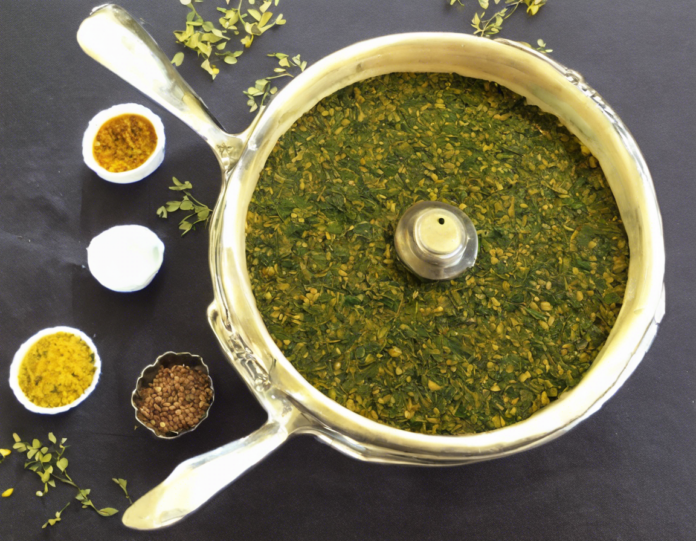Introduction
Fenugreek, commonly known as methi in Hindi, is a versatile herb that has been used for centuries for its culinary and medicinal properties. With a slightly bitter taste, methi is popular in Indian cuisine and is also highly valued in traditional medicine systems like Ayurveda. Beyond its flavor-enhancing capabilities, methi offers a wide range of health benefits that make it a valuable addition to your diet. In this comprehensive guide, we will delve into the various ways in which consuming methi can positively impact your health.
Nutritional Profile of Methi
Before we explore the health benefits of methi, let’s take a look at its impressive nutritional profile. Methi is rich in several essential nutrients, including:
- Fiber: Methi is a good source of dietary fiber, which aids in digestion and helps regulate blood sugar levels.
- Protein: Methi contains protein, which is essential for building and repairing tissues in the body.
- Iron: Methi is a valuable source of iron, which is crucial for the production of red blood cells and prevention of anemia.
- Vitamins: Methi is packed with vitamins, including vitamin A, vitamin C, and various B vitamins that support overall health.
- Minerals: Methi is a source of minerals like calcium, magnesium, and potassium, which are vital for various bodily functions.
Health Benefits of Eating Methi
-
Regulates Blood Sugar Levels: Methi seeds are known for their ability to lower blood sugar levels. They contain fiber and compounds that help slow down the absorption of sugar in the stomach, preventing spikes in blood glucose.
-
Aids Digestion: Methi is a natural digestive aid. It can help relieve indigestion, bloating, and constipation due to its high fiber content. Methi seeds also have anti-inflammatory properties that soothe the digestive tract.
-
Supports Weight Loss: Methi is often recommended for weight management. The fiber in methi seeds helps promote a feeling of fullness, reducing overall calorie intake. It also boosts metabolism and aids in fat burning.
-
Lowers Cholesterol Levels: Regular consumption of methi can help lower bad cholesterol (LDL) levels and increase good cholesterol (HDL) levels. This can contribute to a reduced risk of heart disease and stroke.
-
Anti-Inflammatory Properties: Methi contains compounds that have anti-inflammatory effects, making it beneficial for conditions like arthritis, asthma, and other inflammatory disorders.
-
Improves Skin Health: Methi is rich in antioxidants that help combat free radicals and protect the skin from damage. It can help reduce inflammation, acne, and signs of aging, promoting healthy and glowing skin.
-
Boosts Immunity: The vitamins and minerals present in methi help strengthen the immune system. Regular consumption can help the body fight off infections and illnesses more effectively.
-
Enhances Milk Production: Methi is well-known for its galactagogue properties, meaning it can help stimulate milk production in breastfeeding mothers. Including methi in the diet can aid in maintaining adequate milk supply.
How to Incorporate Methi into Your Diet
Now that you are aware of the numerous health benefits of methi, you may be wondering how to include it in your diet. Here are some simple ways to incorporate methi into your meals:
- Sprinkle methi seeds on salads or yogurt: Toast methi seeds lightly and sprinkle them on your favorite salads or yogurt for a crunchy texture and nutty flavor.
- Use methi leaves in curries and stews: Fresh methi leaves can be added to curries, stews, and soups to impart a unique flavor and enhance the nutritional value of the dish.
- Blend methi seeds into smoothies: Add a teaspoon of methi seeds to your smoothies for a nutritional boost. The seeds will blend well and add a subtle bitterness to the drink.
- Make methi parathas: Incorporate finely chopped methi leaves into your paratha dough for a flavorful and nutritious flatbread.
FAQs (Frequently Asked Questions)
-
Can methi help in managing diabetes?
Yes, methi seeds are known to help regulate blood sugar levels and may be beneficial for individuals with diabetes. However, it is important to consult a healthcare provider before making any significant dietary changes. -
Are there any side effects of consuming methi?
While methi is generally safe for most people when consumed in moderate amounts, it may cause gastrointestinal issues like bloating or gas in some individuals. If you experience any adverse reactions, discontinue use. -
Is it safe to consume methi during pregnancy?
Pregnant women should consult their healthcare provider before consuming methi, especially in large amounts, as it may have uterine stimulant effects. -
Can methi seeds be used for hair growth?
Methi seeds are believed to promote hair growth and improve hair texture. They can be soaked, ground into a paste, and applied to the scalp. However, individual results may vary. -
What is the best way to store methi seeds and leaves?
Methi seeds should be stored in an airtight container in a cool, dry place. Fresh methi leaves can be stored in the refrigerator wrapped in a damp cloth or paper towel to maintain freshness.
In conclusion, methi is not just a flavorful herb but a powerhouse of nutrition with numerous health benefits. By incorporating methi into your regular diet, you can harness its medicinal properties and improve your overall well-being. Experiment with different recipes and ways of using methi to enjoy its diverse benefits and flavors.
